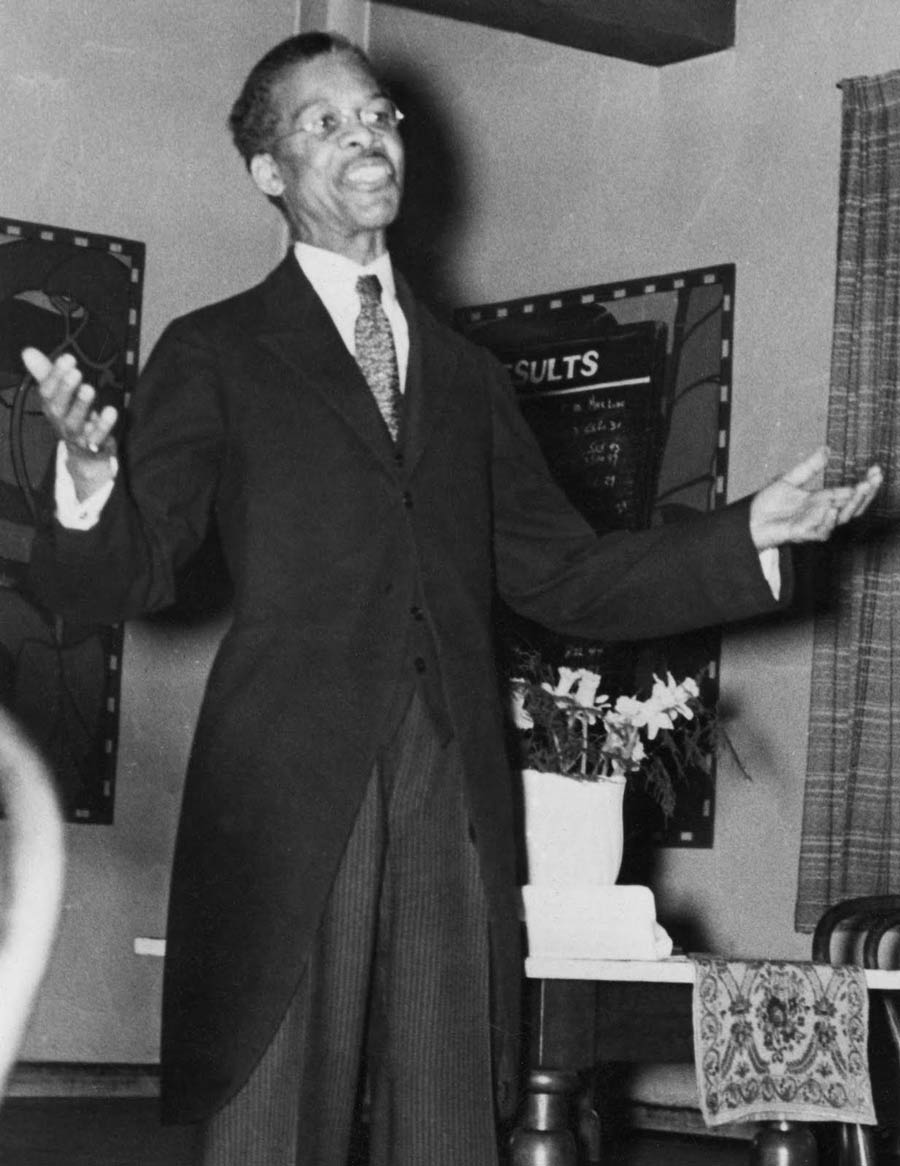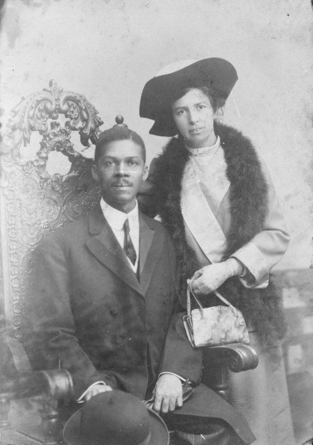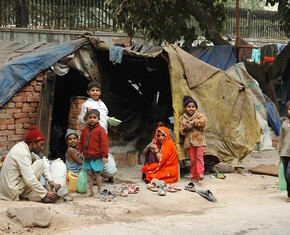The views expressed in our content reflect individual perspectives and do not represent the authoritative views of the Baha'i Faith.
Louis Gregory, one of the earliest African-American Baha’is, tried hard to close his eyes to racial differences.
Painfully aware of the injustices and peril dogging African-Americans in his country, Louis nevertheless followed the example of Abdu’l-Baha, who warned that the deadly claw of prejudice could doom entire peoples, yet (as Louis put it) “pointed out the oases rather than the deserts of their environments,” envisioning “a new sociology for the world in general and America in particular.” – Champions of Oneness, pp. 110-111.
As an African-American, as an attorney and as a Baha’i, Louis Gregory believed unshakably in the mission given to him by Abdu’l-Baha when he became a Baha’i in 1909, and repeatedly in later years, to create amity among the races:
I hope that thou mayest become the means whereby the white and colored people shall close their eyes to racial differences and behold the reality of humanity: And that is the universal reality which is the oneness of the kingdom of the human race … – Abdu’l-Baha, from a tablet written to Louis Gregory, Star of the West, Volume 7, p. 103.

Louis Gregory
Abdu’l-Baha told Louis to ignore his physical and spiritual limitations, to concentrate on God’s power and be resigned to God’s will, “so that … thou mayest … become the cause of the Guidance of both races…” – Ibid.
Even before receiving this message, in the days right after he formally became a Baha’i, Louis championed oneness. His first act as a new Baha’i was to ask for a meeting with “the committee”—the group that steered Baha’i activities in Washington, DC, at the time. The committee was all white. There were other African-American Baha’is in Washington besides Louis, mostly taught about the Baha’i Faith by the same people who had taught him: Pauline and Joseph Hannen and other members of their family.
Meetings in the homes of African-Americans, and at the Hannens’ home, were integrated. Other meetings were not. Louis later wrote:
As soon as I became a believer … my colored friends got on my back and began to press me with troublous questions. If this were a new religion which stood for unity, why were its devotees divided? Why did they not meet together in one place? Were the Baha’is not full of prejudices like other people?” – Ibid., p. 73.
In fact, although Baha’is accepted the brotherhood of man, many of them thought it didn’t need to be fully instituted just yet—one soul opined that such a revolution might take place in, perhaps, a thousand years. Louis differed entirely. He met with the committee, but they were stodgy, so he himself started arranging integrated public meetings. This was the first skirmish in the war that Louis would fight all his life, into the 1950s, and with only a few allies. But the Baha’i Faith was his, and he would live it as he saw fit. He knew that Baha’is don’t assume they’re perfect—but that the teachings of the Faith would ultimately result in the unification of all humanity, if the Baha’is and others would only follow those teachings.
During the last decade of his life, Louis drew upon a lifetime of field work to develop a manuscript on race relations (as yet unpublished). In it, he wrote:
… racial amity is a bounty (that releases oppressor and oppressed) from a psychosis that generally goes with a denial of rights which should be the common heritage of the free, thus sowing the seeds of conflict present or future.
He saw that each oppressed group “develops a psychosis similar to that of the others and each may think that his sore spot is unique.” He felt that “The knowledge of each other’s trials may strengthen their combined efforts to overcome.” – Champions of Oneness, p. 204.
However, Louis said that prejudiced people are victimized by their own hostility as they “dwell in a world of fancy and superstition” while the objects of their hostility “must yield to cruel and needless restraints not of their own making.” He understood the damage wreaked on all sides by prejudice:
Who can estimate the millions deprived of knowledge by the veils of prejudice, or the millions more who are maddened to crime by its manifold injustice?
Its sire is pride and its mother is ignorance. The offspring of such parentage is well qualified for mischief. The extreme radicalism which today sweeps over a large part of the world is one of the signs of reaction to the prejudices of centuries.
One of its subtlest dangers is that the mind swayed by prejudice is rarely aware of its condition.
The prejudiced person is perhaps the last to perceive it … the biased mind is only just as seen by itself … – Louis Gregory, Star of the West, April 1924, p. 11.
Fortifying his own clarity, Louis was always very direct about who he was and where he came from. He came from the Deep South and he said he knew that country “like Brer Rabbit knows his briar patch.” His grandmother, mother and father had been slaves. His grandfather on his mother’s side was a white plantation owner, South Carolina Senator George Washington Dargan, a state senator and judge. Louis owned that heritage, but the Dargans didn’t own him. Louis graduated at the top of his class from Howard University law school, and when he began dedicating himself entirely to Baha’i racial amity work, he knew that many of his colleagues and mentors thought he’d gone crazy.

Louis and Louisa Gregory
With Abdu’l-Baha’s encouragement and blessing, Louis married a white Baha’i woman—Louise Gregory—and they became one of the first American couples to cross the color barrier and then travel openly throughout the South.
During that time, this was not a light thing—Louis was personally acquainted with an African-American man and a white woman who had become Baha’is only to be incarcerated in mental hospitals by their irate families. Fortunately, his family wasn’t irate. He later said that if the people who’d impugned his sanity knew he traveled on the thinnest of shoestrings and never charged any speaker’s fees, that would cement their opinions on the matter. No doubt they also would have frowned upon his habit of bestowing $5 bills on people he felt were in need.
In the midst of the Great Depression in the 1930s, he wrote to a friend who was out of money:
I sometimes let myself drift into despondency, but I am always ashamed of it. God has given us so much and has promised us so much more … So many people that I know are in serious difficulties that life itself would hardly seem justified were I not absolutely assured that through the present depressing conditions the purposes of God are being fulfilled.
He said personal tests were useful in fostering “understanding of the sufferings of others.” He enclosed a five dollar bill saying, “Please accept with a brother’s love the pittance that is enclosed. I am sending it not because … in itself it has much value, but sometimes by sending small sums to friends who are distressed it has been the means of starting other things that have brought them prosperity. I hope and pray that it may be so in this case … – Gayle Morrison, To Move the World, pp. 234-235.
















Comments
Sign in or create an account
Continue with Googleor